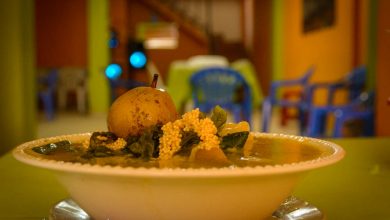Cuzco and Its Workers Celebrate

May Day and the mind of North Americans turns to Maypoles and classic fertility celebrations. But in most of the world, Cuzco included, this is the Day of Workers. It is a holiday and the streets are silent, their normal activity suspended as people celebrate in barbecues, outings, and family celebrations of the importance of work.
Because the holiday fell on Tuesday, many people made plans to spend a long weekend holiday in family and worker outings to the countryside or to favorite restaurants, such as the fincas, the garden restaurants in urban and rural areas. These days they fill with people celebrating.
But these are only a few of the options. People also go to concerts in droves to hear popular Peruvian bands while enjoying the Day of the Worker in classic Peruvian style, dancing, drinking, and just having fun.

Today the discotheques of Cuzco will fill. All is ready for this important day of celebration in which people will drink a lot. On the radios, the announcers indicate which places are organizing the best dance parties for the Day.
Given its importance, today converts itself into a day with a lot of movement and fun.

Many businesses also have organized special events for their workers on this Day. In truth the celebrations already began Monday night or very early on the first when all workers have organized to go out and celebrate while eating, drinking, and dancing. The businesses provide celebrations to honor their workers on their day, since without workers there is no industry or business.

In the morning, they sponsor athletic competition, where their workers organize teams and compete at soccer. They also compete in what are called jincanas, tug of war, and the indigenous game, sapo, or toad a game where coins are tossed from a distance at a target which is a toad, sort of like horseshoes. Sapo is a tradition game in the chicherías and picanterías which fill on this day. They also play basketball and other sports.
This is not surprising since sports as social custom came into Peru with the railways and their workers at the end of the nineteenth century and the beginning of the twentieth. They were part of the civilizing modernity of the British who dominated Peru’s economy at the time.

On this day the fairs, popular restaurants and gathering places, such as Cuzco’s many chicherías and picanterías prepare special dishes to honor workers. The workers lover the festive dishes of lechón and baked cuy (guinea pig).
In addition the various institutions of the City of Cuzco put together large-scale events, such as concerts throughout the city of popular music, Andean cumbia—also called chicha—and whatever style is gathering attention. One of the best places to get good food, beer and music is at the Beer Garden of the Cervecería Cuzqueña.

Another great place to enjoy live music and food is in Cuzco’s Plaza de Armas, its main square.
Businesses also give their workers a bonus to their wages on this important day.
The vividness and excitement of this celebration that passes without demonstrations is notable in Cuzco. At the same time, it contrasts with the United States, where the May Day holiday as a labor day first started. It began with the Haymarket riots in Chicago and the struggle for an eight-hour workday. Yet in the United States today is a normal workday and school kids only learn about the May Pole and ancient Anglo Saxon customs, while this North American holiday has great resonance in the land of the Incas.

On this day Cuzco Eats wishes to extend a special greeting to all workers in the City of Cuzco—the guides and other workers of Agencies who keep tourism flowing. Even though it is their day, many will still be working today because tourism never stops. We also send our thanks to all the municipal workers and others who keep the city of Cuzco working as the charming and inviting city it is.
As they say in Cuzco’s Quechua, Kausachun Cuzco, Long live Cuzco and its workers.




